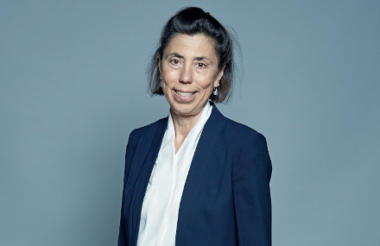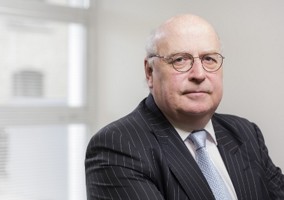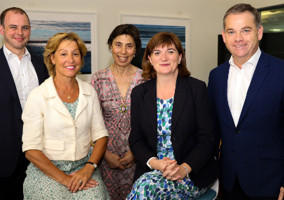When Baroness Barran was announced as the new minister for civil society, she received a broadly positive reaction from the sector, which by and large viewed her as “one of the gang”.
Before entering the House of Lords she founded and ran the domestic abuse charity SafeLives, and also worked at the charity sector think tank New Philanthropy Capital (NPC). She has also been a trustee of Comic Relief and the Henry Smith Charity.
“I feel incredibly lucky because it’s an area that I care enormously about, and hopefully can draw on some of my own experience to do something useful,” she says. She describes herself as having “miles on the clock” when it comes to the everyday challenges of delivering services and influencing policy.
Unlike her two predecessors, Barran is not charged with responsibility for sport, giving rise to some optimism that she will be able to devote more time to the role than either Mims Davies or Tracey Crouch could.
She is, however, the first minister in recent years to cover the charities brief from the House of Lords, though she’s optimistic that this will not present too many difficulties.
“I’ve been pretty encouraged about how open the other ministers are across the department to making sure that what we’re doing in our respective areas is mutually reinforcing. There’s obviously tonnes of stuff that’s happening in relation to sport and in relation to culture and the arts that overlap with the civil society agenda in its broadest sense and in specific aspects of it.”
‘Three priorities’
She says she has identified three priorities to focus on.
“The first is about building more resilient communities, and in my mind that covers two main things. One is the role that civil society organisations can play in healing some of the divisions that we can see today, whether those are Brexit-shaped divisions or religious, ethnic, generational, class or whatever they might be,” she says.
The second is refreshing the government’s approach to young people, and the third is around commissioning processes.
She says: “Both central and local government spend a lot of money through commissioning with the voluntary and community sector - how can we do that better? How can we use the Social Value Act to best effect?”
‘Testing those priorities’
Barran has now begun a listening exercise with the sector before setting out more detailed plans for the future.
“Job number one is to listen,” she says.
She held two roundtable discussions last week and has three more planned in Newcastle, Liverpool and Nottingham. This is allowing her to meet with a wide range of organisations, and people “who reflect the communities that they serve”.
She has also been inviting people to participate on social media, and has been tweeting using the search tag #ourcivilsociety.
She adds that the aim is to be “testing out those three priorities but also listening to how communities feel we should operate as government. Where should we get involved and where should we get out of the way? Both are important to recognise.”
The next step will be to “put that together in a forward plan which will articulate what we plan to do, why we are doing it and how”.
Her ambition is that this plan will “give local people a sense of agency in what is delivered in their communities”.
Ambitious youth policy
Supporting young people is a key part of the Office for Civil Society’s role in government, which has been focused on the development of the National Citizen Service, but Barran says the government is looking towards a “broader” and “more universal” offer.
Last week she announced a £500,000 fund that will provide bursaries for 400 students to undertake youth work qualifications.
And the chancellor, Sajid Javid, revealed in the Spending Round that the Department for Digital, Culture, Media and Sport has been tasked with coming up with proposals for a Youth Investment Fund to support youth centres.
She says the government is looking to “refresh and put real focus on our strategy for young people, particularly a more universal offer for young people, giving them the confidence and opportunities that they deserve”.
She adds that the aim is to create a “much more universal offer” that helps to build resilience and optimism for young people.
“Our ambition is to be much broader going forward.”
Brexit
Brexit looms over everything at the moment, and charity sector policy is no exception.
Like other sectors, charities are anxious for clarity about what might happen, but there are also specific concerns about the pressure the sector could find itself under.
The Department for Digital, Culture, Media and Sport has published guidance for charities, and last week broadcast a webinar with NCVO.
“We’re very focused on it. There’s a team here who are dedicated to making sure that the particular issues that relate to civil society are taken into account, and that the general issues that might affect everybody are communicated in a way that ensures civil society organisations see themselves in that communication,” she says.
But she is tight-lipped about what charities can expect in terms of funding to help them deal with the impact of Brexit or replacements for EU funding in the form of the Shared Prosperity Fund.
She says the government is looking at “any particular need or pressure or demand on charities that might arise as a result of Brexit”, and that details of the long-awaited consultation on the Shared Prosperity Fund, intended to replace funding from the European Union, will be unveiled “as soon as possible”.
|
Related articles












